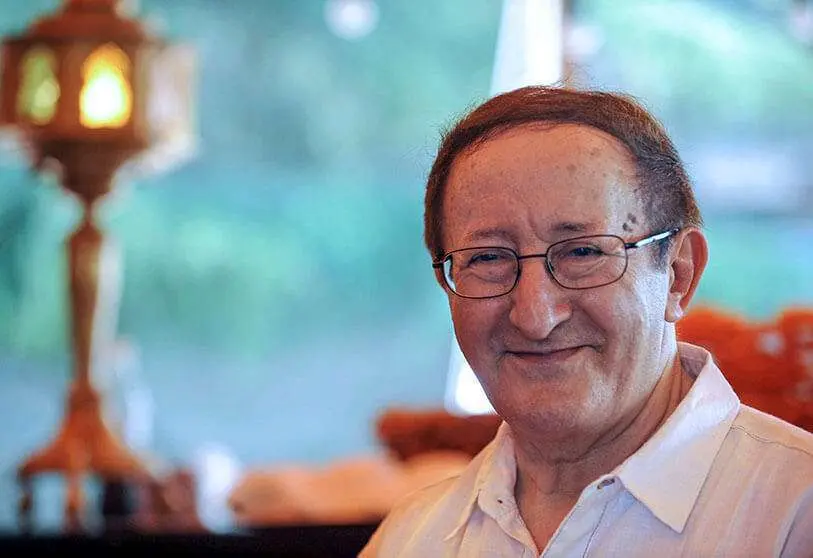Goodbye to the Algerian singer Idir, the voice of the Berbers

The death of the Algerian composer Idir dispels one of the great myths of Maghreb and Kabylie music. The voice of the Berbers. Hamid Cheriet - his real name - died last Saturday in a Paris hospital at the age of 70, victim of pulmonary fibrosis, but his figure had long since transcended the strictly musical. With his music, Idir was able to unite the people of the entire Maghreb, not always in a spirit of brotherhood and harmony, and to carry the sounds of Kabylia - a historic region in northern Algeria - throughout the world. Although his followers knew of his serious illness - which had kept him away from public life for months - the news of his death, which occurred at a difficult time for everyone, unleashed a wave of consternation and mourning on both sides of the Mediterranean and from one end of the Arab and North African West. "We have lost a legend and a man who has made the Algerian song of Kabylie expression travel through many countries of the world. He will always remain alive in our hearts," a close friend of the deceased told the Algerian daily El Watan.
Born in the town of Ait Lahcene - about 35 kilometres from Tizi Uzu, the capital of Greater Kabylia - and the son of a shepherd, Hamid Cheriet was on his way to become a geologist. But an unexpected replacement at Radio Alger in 1973 crossed his path. In front of the station's microphones he performed his song 'A Vava Inouva', a lullaby that took him, after his military service, to Paris and catapulted him to fame. "The song had chosen me, but always with the suitcase ready to leave in my head," he would declare years later. In 1976 the Algerian artist released the album 'A Vava Inouva' with the Pathé Marconi record label. Translated into 15 languages and distributed in 77 countries, it was the biggest success of his career, recalled the newspaper Le Monde. And the first international success of Maghrebian and Amazigh song.

After his second record, 'Ay arrac nney' (1979), he would leave music aside for a decade. In 1999, at the height of the effervescence of his compatriots Cheb Mami and Khaled, he presented a new record, 'Identités' (Identities), a call for dialogue and brotherhood between peoples alongside artists such as Khalida Toumi, Karen Matheson, Manu Chao, the National Orchestra of Barbès, Gnawa Diffusion and Zebda. In 2002 he presented 'Deux rives' (Two Shores) with the special collaboration of Jean-Jacques Goldman. In 2007 he presented the record 'La France des couleurs' (The France of Colours). And ten years later, in 2017, she released 'Ici et ailleurs' (Here and there), adaptations of great hits of French song in the Berber language, recorded with artists such as Charles Aznavour, Bernard Lavilliers and Francis Cabrel. Idir only published seven studio albums during his entire career.
His close friends and acquaintances emphasize his affable character and simplicity. He took credit for his successful career. "I came at the right time with the right songs," he would say in an interview in 2013. "He has known how to remain humble, simple, easily accessible, an agglutinator", says his friend Rabah Mazouane, former music programmer at the Institute of the Arab World in Paris, in a statement to Le Monde. Thanks to him, we are known and recognized in the world in terms of art and identity. We have lost a great man full of wisdom and humility," a cultural leader from the commune of Ath Yenni in Algerian Kabylia told El Watan on Sunday. After a 38-year absence due to political differences with the Algerian regime, Idir returned to his country to perform again in 2018. A year later, he publicly expressed his support for the protests that led to General Bouteflika's departure from the political scene.

Grief reactions have been profuse. The Algerian president himself, Abdelmadjid Tebboune, publicly regretted the disappearance of the artist on his Twitter account: "I welcomed the news of his death with immense sadness. With his passing, Algeria has lost one of its monuments." From France, his adopted country for almost half a century, President Emmanuel Macron paid tribute to the composer on social networks: "A unique voice has been silenced. Idir sang of his Kabylia roots with the melancholy of an exile and the brotherhood of the people with the hope of a humanist. The poetry of his songs will resonate for a long time from one side of the Mediterranean to the other". Long before Tebboune and Macron, the sociologist Pierre Bordieu spoke of him: "He is not a singer like the others. He is a member of every family".
Social networks - both Algerian and Moroccan - were flooded this Sunday with messages of pain and gratitude to this myth of Berber culture, which continues to flourish in today's Morocco, Algeria, Tunisia, Libya, Mali and Niger. "Art is sad. An artist, true and authentic, has been lost. A poet and a musical virtuoso. An ambassador of the song of Algeria and Kabylia," summarized a young follower on Facebook. "Hamid Cheriet is dead, but Idir (a name that means 'will live') is immortal," said a childhood friend from his hometown last Sunday.








